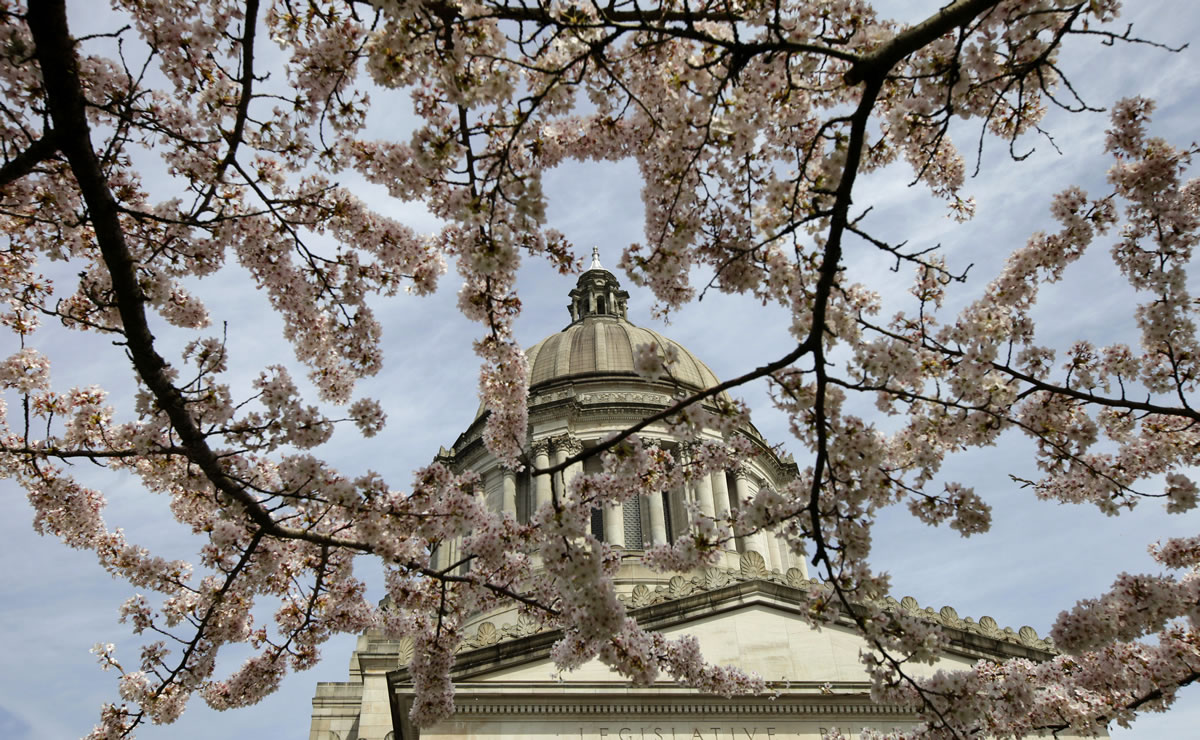OLYMPIA — Staffers in Washington state’s financial management agency have been conducting legal and historical research to determine what would happen if lawmakers fail to pass a new budget before the start of the fiscal year.
David Schumacher, the budget director under Gov. Jay Inslee, said the work is being done in order to keep officials prepared and insisted that it’s not a sign that budget negotiations are at an impasse.
Still, Senate Minority Leader Ed Murray called the pace of negotiations “glacial.”
“I think the worst case scenario is we find ourselves on June 30 without a budget and we go into territory we’ve never been into before,” he said.
Schumacher said he’s still hopeful that negotiators will begin coming closer together soon as they start swapping revised budget plans. The House and Senate budgets have a $1 billion chasm between them, with House Democrats seeking new revenue by extending taxes and eliminating tax breaks.
Schumacher said typical negotiations in Olympia would find a solution somewhere in the middle of that gap.
“You kind of split the difference,” Schumacher said.
That’s not a message received as well on the Senate side. A coalition comprised of two Democrats and all of the chamber’s Republicans have opposed taxes and balked at the breadth of taxes proposed by the House.
Senate Majority Leader Rodney Tom, D-Medina, suggested that House Democrats first scrap their plans to extend the business and occupation tax that comprises roughly half of the House revenue proposal. Tom said the two sides could then be much closer.
“Right now, the problem is the gap is so big,” Tom said. “If the B&O comes off the table, I think we’re much more likely to see where people can go, ok, we can find a way home.”
Lawmakers generally project that they won’t have a budget done by the end of May but are striving to complete one by the end of the special session on June 11.
At times in the past the Legislature has continued working on the budget until late June. This year, lawmakers blew past their regular working time that ended in April, largely due to philosophical differences about how to deal with revenue.
Lawmakers face a $1.2 billion budget shortfall for the two-year cycle that ends in the middle of 2015. That doesn’t count for other money lawmakers are seeking for education in response to a court-ordered requirement that the state isn’t fulfilling its obligations there.
Meanwhile, both sides are also pushing other priorities that may complicate the process. Inslee is pushing for a transportation revenue package that could further raise taxes to pay for major projects. Senate leaders are pushing a list of 33 bills they’d like to be part of budget talks, including changes to state retirement plans and an overhaul of state spending on environmental cleanup.
Lawmakers do face a June 1 statutory deadline to finish the budget, though they have blown past that date at times in the past. Already, the state treasurer’s office has delayed a scheduled June bond sale because of the lack of a budget.
“We’re not going to go in front of credit rating agencies and investors when we don’t have a budget,” said the treasurer’s spokesman Chris McGann. “In order for them to assess the strength of our finances, they need to know what our plan is.”
McGann said the office also has lawyers looking at what would happen if the Legislature is still working at the end of June and how officials would handle bond payments and other things that come due.
Schumacher said he doesn’t want to make a big deal about the research about what would happen at the end of the fiscal year because he doesn’t want to come across as threatening or political.
“I’m trying to be helpful and positive and encouraging,” he said.




